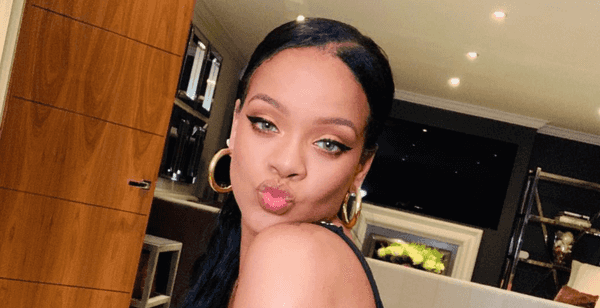On OWN's Super Soul Sunday, Oprah sat down and chatted with Shonda Rhimes -- the mastermind behind some of today's best television dramas -- about her new book, "Year of Yes: How to Dance It Out, Stand In the Sun, and Be Your Own Person." They discussed everything from Shonda's painful shyness to her revolutionized approach to motherhood. When the topic of marriage came up, Shonda shared a revelation that she found while writing her book: She is not interested in marriage. "I have never wanted to get married," Shonda declared. "I love having boyfriends, I love dating. I do not want a husband in my house." Oprah responded with a secret of her own -- she herself has never want to be married or have kids. Shonda and Oprah shared a collective sigh of relief after sharing what they referred to as a "dirty little secret" that would liberate many women after they heard it.
To hear two of the most powerful black women in the entertainment industry express the freedom they felt from voicing this not-so-dirty "dirty little secret" speaks to the kind of pressure placed on women as a whole.
During the interview, Oprah recalls the number of times the media has speculated as to why she has yet to marry her long-time partner Stedman Graham. Oprah has had to tackle all kinds of rumors, most often one that claims she is a closet lesbian in a secret relationship with her best friend. Not once was it considered that possibly she does not want to get married simply because she does not want to get married. Since marriage and motherhood are both thought of as things inextricably tied to womanhood, we look to find rationalizations when a women does not achieve or work for these things. In a New York Times article published in 2011, writer Angela Stanley addresses the myth that black women are problematic, difficult, and undesirable that has been used to explain the high percentage of unmarried black women. Never do data or statistics factor in the fact that many black women choose to be single rather than settle. Instead, Stanley says it is automatically assumed that "when a black woman chooses to be single, she just can't get a man." For some that may be the case, but for others, it is most often a conscious choice.
At the young age of 19, I have learned that it's much easier to avoid the conversation around relationships than to express my sentiments. I keep from discussing how much more at peace and happier I feel single and in solitude so that I can escape the "you're too young to know what you want yet" and any other reasonings that always follow. There may be a truth in those reasons, but what about the young women who grow more firmly in the decision that marriage does not interest them?
Oprah and Shonda, through their success and status, show that this choice is one that can still offer happiness to women. In recent years though, people have seen this growing number of successful, single women -- especially black women -- to be part of a "marriage crisis" in which marriage is perceived to be under attack and consequently destroyed. Thankfully, Oprah and Shonda do not debase marriage during their discussion. They acknowledge that they would not be the women they are, do the things they do, or live the lives they live if they were married, but they make sure to let it be known that this does not apply to every woman.
Success is not a threat to one's love life. Some people do make it work, but Oprah and Shonda know themselves enough to know that it could not work for them. That's what the choice should come down to. The choice to marry or not to marry does not speak to a woman's weakness or strength. She is not "too strong" or "too weak" for choosing whichever path brings her the most happiness. If someone knows what's the key to their own happiness, how can that be wrong? What's wrong is when they're urged to "give marriage a try" or find happiness in the traditional sense when they have already made up their minds. What's wrong is not encouraging the consideration of this alternative to the "normal" lifestyle. The question shouldn't be, "So when are you getting married?" but rather, "What makes you happy?" so that women can make choices for the benefit of their own lives without feeling guilt or shame for not doing what's expected of them.




















